 |
 |
 |
 |
 |
JUNE
4-5 Jun, Colombo
5-7 Jun, Bangkok
5-9 Jun, Thimphu
8 Jun, Bangkok
12-16 Jun, Geneva
15-18 Jun, Kathmandu
28 Jun - 1 Jul, Shanghai
JULY
3-4 July, Singapore
4-6 Jul, Singapore
7 Jul, Davao City
8-11 Jul, Tehran
SANOG30
10-18 Jul, Gurgaon
16-21 Jul, Prague
2nd Meeting of the APT Conference Preparatory Group for WRC-19 (APG19-2)
17-21 Jul, Bali
22-26 Jul, Bangkok
24-26 Jul, Colombo
24-28 Jul, Jakarta
26-29 Jul, Bangkok
26-28 Jul, Koriyama
AUGUST
7-10 Aug, Malaysia
7-11 Aug, Seoul
15-17 Aug, Honiara
21-22 Aug, Mumbai
21-22 Aug, New Delhi
22-25 Aug, Bangkok
23-25 Aug, New Delhi
SEPTEMBER
5 Sep, Singapore
7-8 Sep, Melbourne
7-14 Sep, Taichung
14-15 Sep, Tbilisi
18-19 Sep, Bangkok
25-28 Sep, Busan
25-29 Sep, Hong Kong
OCTOBER
2-3 Oct, Kuala Lumpur
2-4 Oct, Singapore
9-20 Oct, Buenos Aires
India School on Internet Governance
24-26 Oct, Trivandrum
25-27 Oct, Jakarta
26 Oct, Kuala Lumpur
NOVEMBER
Pakistan School on Internet Governance
5-8 Nov, Peshawar
7-8 Nov, Chengdu
8 Nov, Auckland
9-10 Nov, Auckland
12-17 Nov, Singapore
16-19 Nov, Lahore
28-30 Nov, Yangon
|
 |
 |
 |
 |
|
|
 |
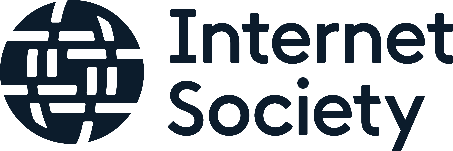
|
MAY 2017
|
|
|
|
This is a monthly e-newsletter published by the Internet Society's Asia-Pacific Regional Bureau. It has updates on the Bureau's activities and features insights on the transforming Internet landscape in and around the Asia-Pacific region.
If you like our e-newsletter, you can share it by clicking on the social media links above.
|
Editorial: Unpacking Online Privacy in the Pacific Islands
|
|
|
Privacy concerns are on the rise in the Asia-Pacific region. Several governments are currently updating, if not formulating relevant privacy frameworks that are more suitable for the online environment. But while some, like Indonesia and South Korea, are exploring broader means to protect data on the Internet, such as including a "right to be forgotten" clause in domestic legislation, others have also sought to forestall the more widespread deployment of encryption technologies, which will help to ensure privacy online.
Meanwhile, both public and private organisations, from tax authorities to social media platforms, are collecting more and more information about us through and on the Internet. This, combined with the continuing increase of Internet usage in the region, as well as the advent of big data, inevitably exposes more and more people to privacy and security risks in cyberspace.
To aid the development of appropriate guidelines for online privacy in the Pacific sub-region, we brought local experts, stakeholders and community educators together in Vanuatu last week for a one-day workshop on online privacy. The workshop was organised in partnership with the Office of the Government Chief Information Officer (OGCIO), and the Telecommunications and Radiocommunications Regulator (TRR).
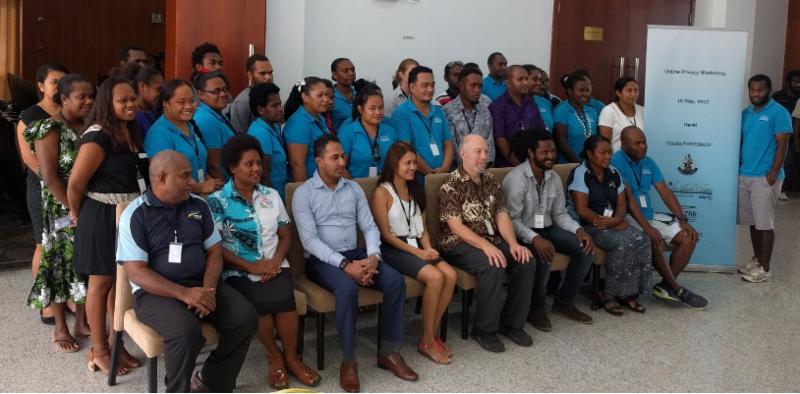
The event sought to thresh out online privacy issues and challenges as experienced by Internet users, governments, private sector and other stakeholders in the Pacific, as well as highlight good practices and approaches that can be adopted to keep the Internet a trusted space in the sub-region.
The workshop, which was collocated with a number of sub-regional events that included the annual Pacific ICT Days and the Pacific Internet Governance Forum in the capital of Vanuatu, Port Vila, is the first in a series of Online Privacy Workshops that the Internet Society Asia-Pacific Bureau will be holding this year in several countries across the region.
Representatives from other Pacific island nations such as Fiji, Samoa and Papua New Guinea, brought their own perspectives to the event, making it a truly regional discussion. Close to 50 participants joined the panel and breakout sessions, sharing their thoughts on various aspects of privacy on the Internet.
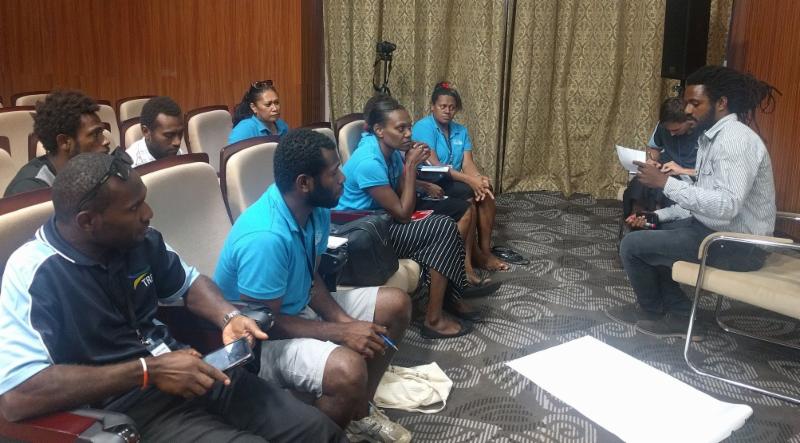
Broadly, there was a good grasp of privacy as a concept by which information about ourselves, our behaviour and our activities can be shared with others. But participants were also very much aware that privacy is contextual, differing between cultures and communities - thus women, or persons with disabilities can have very specific needs and may encounter different risks to their privacy online.
One of the interesting themes that emerged in the workshop was the distinction made by participants between privacy online and in the real world, with many acknowledging that they are more likely to readily share information about themselves to strangers on the Internet than with a random person on the street. Concerns around privacy revolved mainly around the lack of transparency in what kinds of information are being collected and held by the entities with whom users regularly interact with online, and how they are being used.
While many are making use of tools made available by browsers and content providers, such as changing their privacy settings on Facebook or opting for a private browsing mode, participants also felt ill-equipped to fully protect their information and privacy on the Internet, citing insufficient technical skills and digital literacy. Amidst the lack of an overall sense of security, many take comfort in anonymity online: It was not uncommon for participants to provide false names and information about themselves to protect their privacy and identity on the Internet.
Fundamentally, participants felt that privacy becomes an issue when Internet users do not know the risks that they face online - and many feel that it is the responsibility of governments and the private sector to enable people to protect themselves, especially while using their products and services on the Internet. Now that the Pacific islanders have spoken, let's hope that our institutions, at local, regional and global levels, will listen.
Regional Programmes Coordinator
ISOC Asia-Pacific Bureau
|
|
Guest Article: What ISO Layer 8 Means to Internet Australia
|
|
|
by George Fong, Secretary, Internet Australia (the Internet Society Australia Chapter)

The Internet is often viewed by users as a mysterious black box that just works (mostly). On the technical side, we as a Chapter see all of the seven
Open Systems Interconnection (OSI) layers that make up the Internet and what we do on it. However, the unofficial non-technical layers above the 7th layer are useful guides to understanding the range of issues affecting the Internet today.
Layer 8 is often referred to as the "user" or "political" layer.
It is useful to remind ourselves that the technical marvel of the Internet would not exist without the humans at its edges interacting with it. In fact the only reason the Internet and most technologies exist, is in relation to human or user outcomes.
We at
Internet Australia believe that the Internet is for everyone, and based on this belief, we have been guiding good technical development at a number of levels. These include the provision of long-term durable broadband infrastructure, to the promotion of secure and integral access to online services. But we have learned that it is not possible to be a good technocrat without tackling that enigmatic Layer 8.
In the days when governments and authorities were blissfully unaware of the huge impact and potential of the Internet, providers and technologists were free to grow the Internet as they saw fit. Over the last seven or so years, this has changed. As we all well know, political and economic concerns and interests have intervened.
Where political forces and economic drivers have kicked in, we have learned that engagement with those who wield political power and those who are interested in profitable outcomes is essential in our endeavours to see a free, accessible and ubiquitous Internet. As we have discovered in Australia, politicians and commercial enterprises are not necessarily informed or guided by technical and scientific truths and complexities.
Defining human impact, pursuing social outcomes and protecting the technical integrity of the Internet at Layer 8 have now become an inextricable part of what we do. Some might say that this has always been the purpose of Chapters. In reality, our Chapter has historically had a technical perspective and orientation.
But times have changed. As everyday life becomes more and more dependent on connectivity and the Internet, our Chapter has needed to combine its technical expertise with the requirement of becoming politically and economically savvy, in order to maintain a sharp focus on the integrity of human outcomes for the wider user community. We have been actively involved in voicing concerns about the rollout of the Federal Government's National Broadband Network, the implementation of metadata retention laws, digital copyright issues, and cybersecurity and encryption for small businesses.
Some of this work has been met with criticism and has been disliked by the Government. But in Australia we are lucky enough to live in a political and cultural environment where we can actively engage and debate and discuss. Not all Chapters have this precious freedom. But our view is that a consideration of OSI Layer 8 is still of significant importance to all Chapters of the Internet Society.
The views and opinions expressed in this article are those of the author and do not reflect the views of the Internet Society.
|
|
Profile Feature: Shabana Mansoory, Board Member, Internet Society Afghanistan Chapter
|
|
|
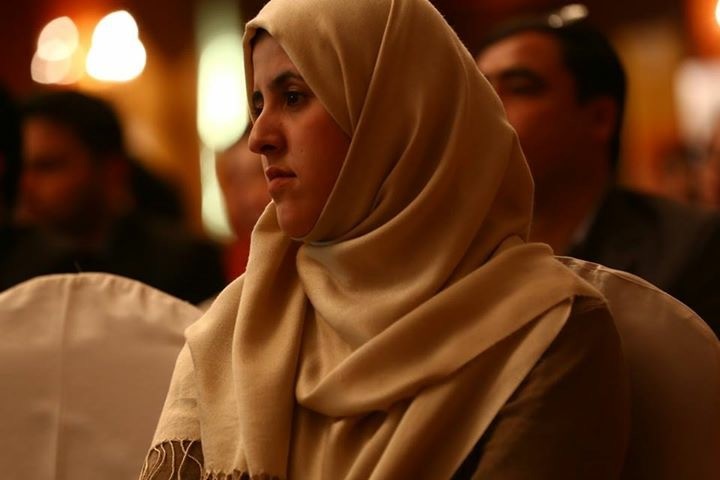

Shabana Mansoory is currently the Skills Development Manager at the Afghanistan Center for Excellence, providing training to graduates of public universities on job readiness, career management, entrepreneurship and personal development.
She is the co-founder of
TechWomen Afghanistan, a women's network and platform that aims to empower women as global leaders and technology experts.
In addition, she has been actively involved with the Innovation Lab series of events in Afghanistan since 2012, from being a participant to organising, chairing and mentoring in 2016.
Shabana received a bachelor's degree in Computer Science from Kabul University, and started her career in database development at Chemonics International.
Prior to her current roles, she was appointed Chief Information Officer at the Ministry of Communications and Information Technology for the e-Governance Resource Center Project. She was also the Executive Board Member of AIESEC's national chapter in Afghanistan - the world's largest student-run organisation.
Shabana's work is mainly focused on the personal development of young people, women's employability, and the development of startups and businesses through the use of information and communications technology. Her expertise and interests are in the areas of entrepreneurship, skills development, innovations, building employability skills, encouraging online freelancing, coaching and capacity building. She has lived, traveled and worked in Egypt, India, Mexico, Pakistan, Turkey and USA.
|
Chapter News: Afghanistan's First Internet Governance Forum Brought Together a Diverse Group of International and National Stakeholders, including Children
|
|
|
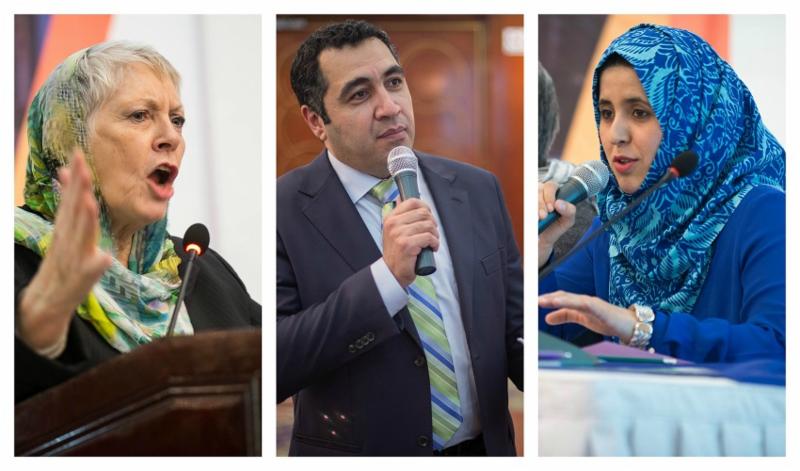
The first annual
Internet Governance Forum Afghanistan (IGFA), organised by the
Internet Society Afghanistan Chapter (ISOC-Afghanistan) took place on 29-30 March 2017 in Kabul.
The event was launched in collaboration with stakeholders and Internet governance experts from 38 organisations - 13 international and 25 national. They included the IGF Secretariat, Commercial Law Development Program of the United States Department of Commerce, Facebook, ICANN Business Constituency, mCade Strategies, APNIC and TechNation.
There were over 200 participants, including several dozen remote participants who joined via the live webcast. This was the first major event in Afghanistan that engaged remote participants, as well as speakers, via live webcast. The event had simultaneous interpretation in English, Pashto and Dari.
Since the global
Internet Governance Forum will be held in Geneva, Switzerland later this year, the IGFA aimed to ensure that Afghanistan's stakeholders are well informed and engaging actively in this forum, and other related Internet governance discussions.
In the effort to broaden the awareness about the term "Internet governance" and its significance for Afghanistan, the IGFA was preceded by a one-day "Afghanistan Internet Academy" - a training programme or "school" on Internet governance. The focus during this day was on building fundamental awareness about Internet governance, highlighting what the key issues are, and what organisations and entities are working on these issues. In addition, the training looked at the importance of being involved in global Internet governance discussions and debates, as well as the need to address Internet governance issues at "home" in Afghanistan, and in the Central and South Asia region.
As part of IGFA, a special programme for children between the ages of 6 and 12 was organised in partnership with one of the international schools in Afghanistan. The IGF Academy for Kids was designed as a stimulating and fun experience for the youngsters to engage in a question and answer exchange about the Internet. The programme included a short video of a young girl sharing her views on the importance of science and technology engagement for girls. The children enjoyed the programme and looked forward to participating in IGFA 2018.
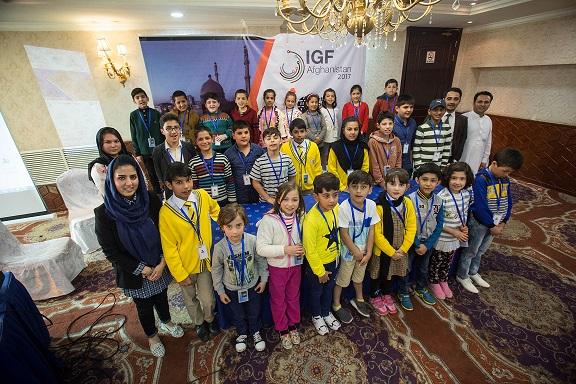
|
INTERPOL Unveils Thousands of C2 Servers in ASEAN
|
Nearly 9,000 botnet command and control (C2) servers and hundreds of compromised websites were identified during an INTERPOL-led cybercrime operation involving public and private sectors across ASEAN. The operation's findings included the confirmation of nearly 270 websites infected with a malware code that exploited a vulnerability in the website design application. Among the victims of malware infection were several government websites that may have stored some personal data of its citizens.
|
|
|
|
Throughout Asia-Pacific, where smartphone penetration is the highest in the world, consistent progress by local governments toward cashless societies benefits the mobile payments market. The initial slow uptake is due to the lack of user interface and payment flow standardisation, the need for additional security features such as biometrics authentication, effective resolution of data privacy issues, and above all, a mobile phone that does not replicate a physical wallet.
|
|
|
|
|
The government sees the need for massive investment to roll-out broadband to rural areas in over 600 districts via fibre-optic and other technologies, which can be expensive and time-consuming. But other more efficient solutions are beginning to emerge. One of them is the use of television spectrum to provide affordable access to rural communities. The Mumbai-based low-cost prototype recently won USD125,000 in the Equal Rating Innovation Challenge by Mozilla.
|
|
|
|
The new regulation, which will take effect on 1 July 2017, requires all Internet users to gain permission from children, or their parents/ guardians if they are under seven years old, before sharing their private information online. Children aged from seven years old and the legal guardians of younger children will have the right to demand authorities and online service providers to remove any private information for their protection.
|
|
|
|
|
Not yet signed up to receive our emails? Join Now
|
|
|